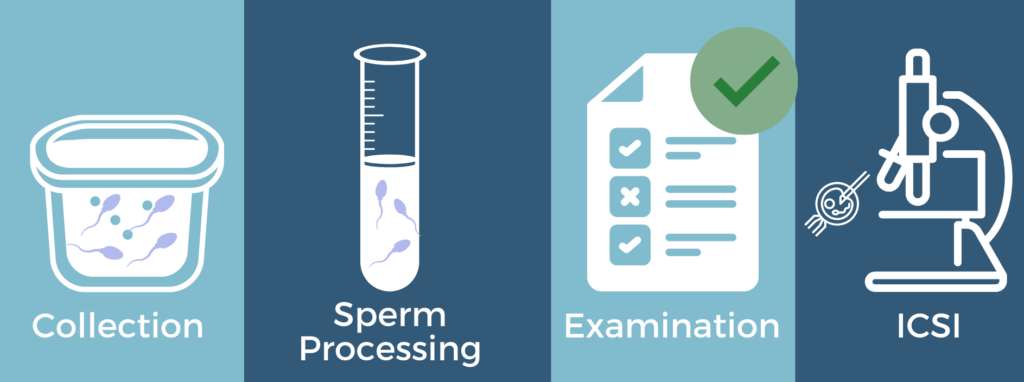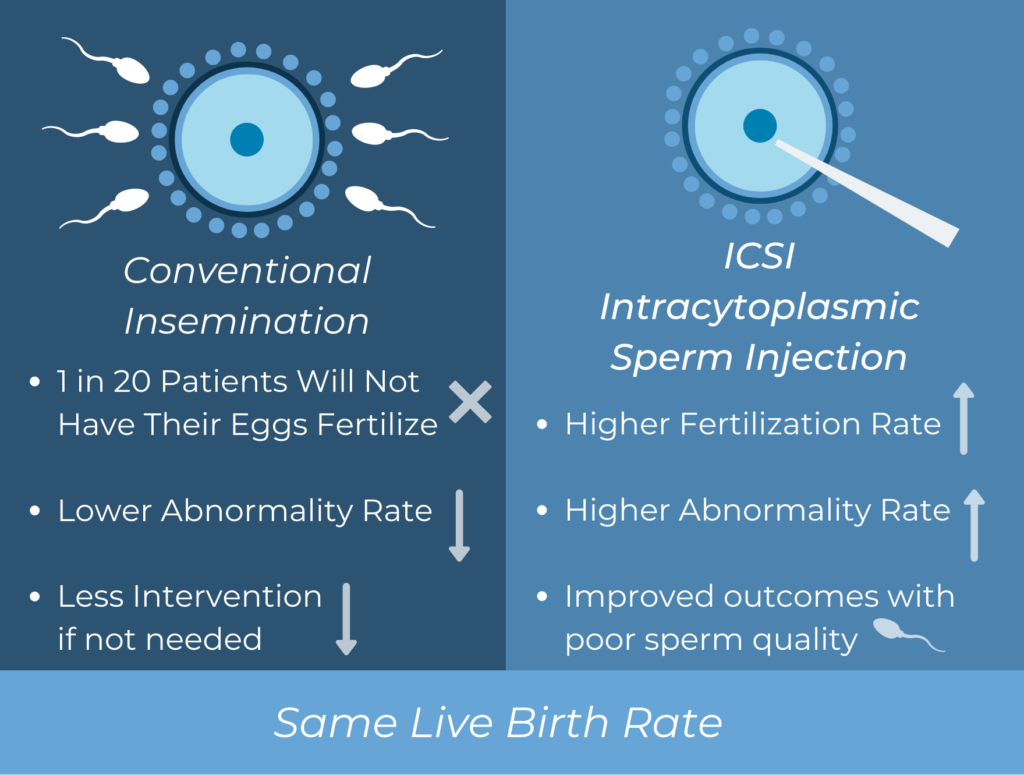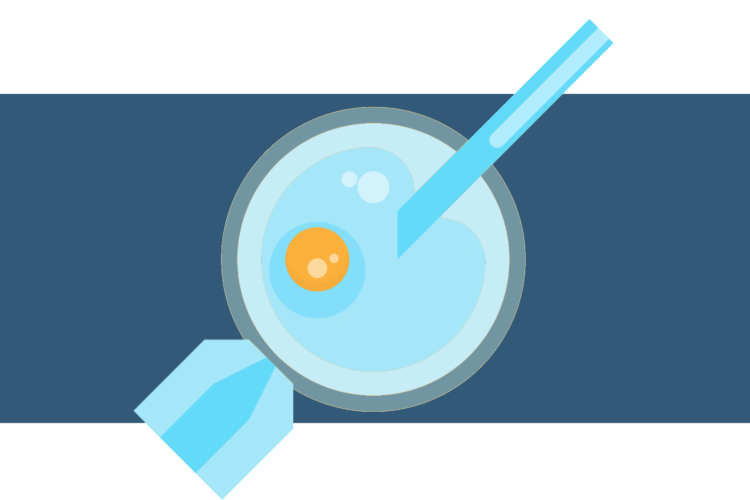What is ICSI?
Intracytoplasmic Sperm Injection (ICSI)[pronounced “ick-see”] is a procedure used during IVF treatment and can be an effective treatment for male factor infertility.
A single sperm, chosen based on its morphology and forward progression, is injected into a mature egg to create a fertilized embryo.
ICSI is used to increase the chance of fertilization when fertilization rates are anticipated to be lower than normal. Compared to conventional insemination (CI), the other fertilization method that can be used during IVF, ICSI produces a 1-2% increased fertilization rate. CI surrounds the egg with prepared droplets of sperm to facilitate fertilization, rather than injecting a single sperm directly
ICSI Timeline

When should I choose ICSI?
- Male factor infertility concerns.
- Typically identified with a semen analysis.
- ICSI can also be a great solution to an irreversible vasectomy or for men suffering from paralysis.
- Previous cycles did not produce many fertilized eggs.
- To achieve a higher chance of fertilization.

What are the risks?
While ICSI increases fertilization risks, there are some risks to be aware of. They include:
- Increased risk of genetic defects: The chance of having an abnormal child is about 2-3% from having time intercourse.
- The chance of abnormal development is about 4-5% with conventional insemination with IVF cycle. The chance of abnormal development is about 5-6% with ICSI.
- Increased risk of translocations: The re-arrangement of chromosomes that can cause miscarriage may be more common in ICSI offspring (0.36%) than in the general population (0.07%).
- Whether this association is due to the ICSI procedure itself or to inherent sperm defects has not been determined.



